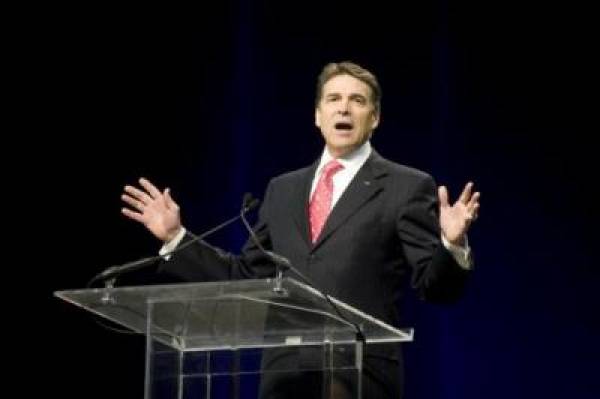Rick Perry for President: Not if You’re a Gambler or Online Poker Player

Texas governor Rick Perry has thrown his (cowboy) hat into the ring, announcing that he's a candidate for President of the United States.
And he's already received an endorsement from a key figure in the gambling industry--poker pro and fellow Texan Doyle Brunson.
But just how good--or bad--would a President Perry be for the gambling industry in America?
Gambling911.com investigated the matter and learned that it would be--in a word--disastrous!
In fact, if Perry were to be elected next year as the 45th President of the United States, he would be the most anti-gambling President in the history of the U.S.
In 2009, the Texas state legislature was considering three separate bills that would have expanded gambling in the state.
One bill would have legalized poker, one bill would have legalized casinos and one bill would have legalized slot machines at existing racetracks.
Perry vociferously opposed each measure and they all died on the vine, according to Texas media reports.
In 2010, the State of Texas was facing an $18 billion budget deficit and the state legislature was again considering expanding gambling in the state, in order to make up some of that deficit, according to a news story in the May 12, 2010 edition of the Dallas Morning News.
Nothing major was proposed, such as permitting casinos in the state or legalizing online gambling.
The suggestions, on the contrary, were pretty innocuous by gambling standards, and included such things as legalizing slot machines at existing horse and dog tracks in the state.
But Governor Perry quickly put his foot down and stamped out any possibility of expansion of any kind of gambling in the Lone Star State, announcing during a public appearance in Richardson, Texas: "The Texas Legislature may find that it (a bill expanding gambling) is something they're interested in--I would highly recommend they don't send it to my desk."
Then, earlier this year, when the issue arose again, "Puritanical" Perry again stomped on it.
After the Fort Worth Star-Telegram printed the results of an opinion poll that showed that 45% of Texans favor expanding gambling in the state while just 34% oppose it, Perry told the newspaper in its January 10, 2011 edition: "I have consistently been an opponent to expanding the gambling footprint in Texas and continue to maintain that position."
Perry's anti-gambling position would be easier to stomach if it were pure.
But it's not.
Like most politicians, he's a phony, easily exposed when one follows the money.
In this case, it's campaign money, and the portrait it paints ain't pretty.
According to official campaign documents examined by G911.co Perry in 2007 and 2008 received a total of $793,356 in campaign donations from gambling entities, including horse and dog racing tracks in Texas and Indian tribal casinos in Oklahoma (the tracks want slot machines, the tribes don't want casinos in Texas).
That makes Perry the No. 2 recipient in the state over that time period of donations from gambling interests, behind top recipient David Dewhurst, the state's lieutenant governor, who got $851,350.
So on one hand, Perry disdains any more gambling in the State of Texas.
But on the other hand--or more precisely in the other hand--he's happy to grab all the gambling cash he can.
Years ago, a crackdown on illegal poker games forced Doyle Brunson to flee Texas for the greener pastures of Las Vegas.
If anti-gambling zealot Rick Perry becomes President and bans all gambling, Brunson this time may have to flee the country.
By Tom Somach
Gambling 911.com Staff Writer










.jpg)




